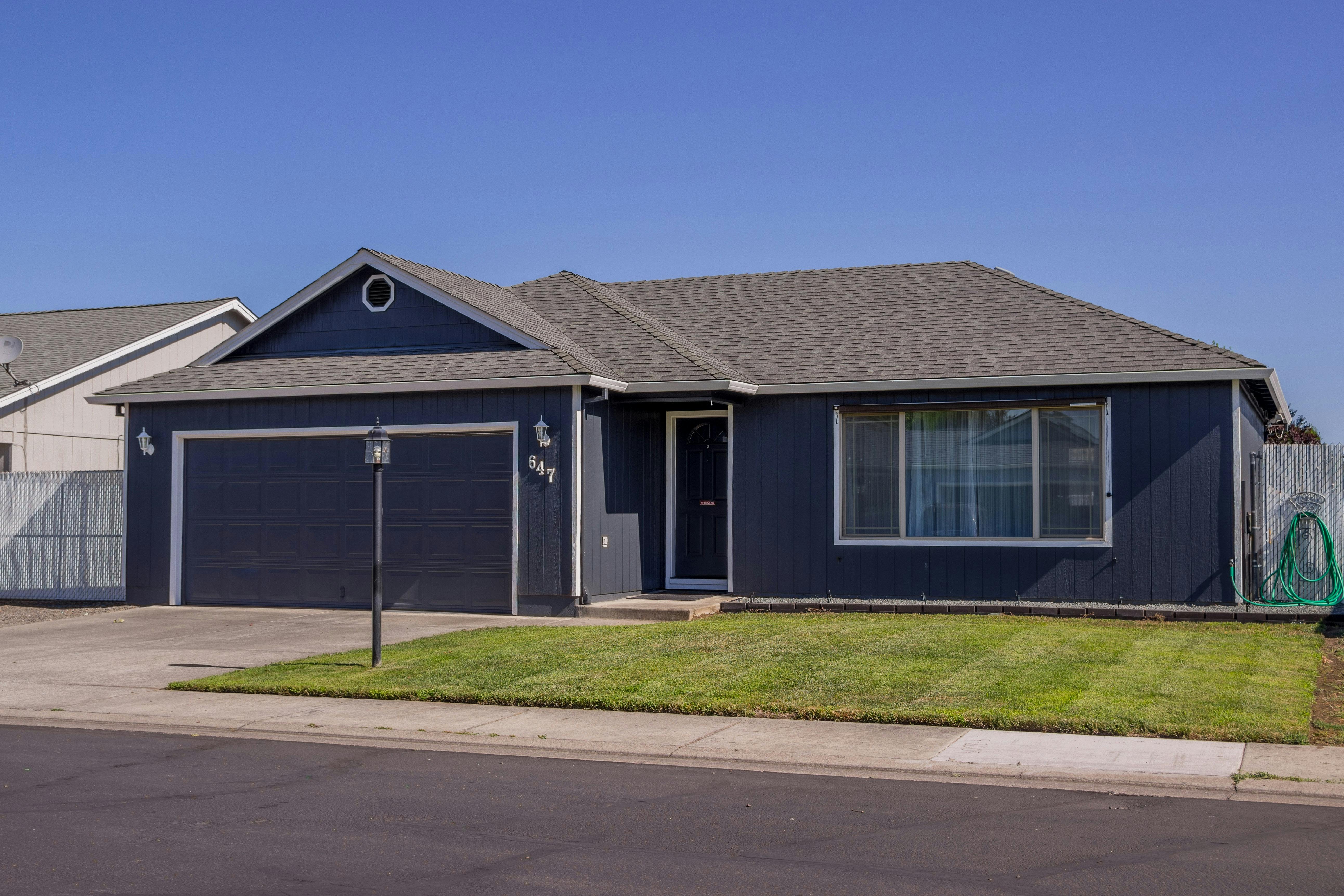Property Management
The Beginner's Guide To Renting Out Your House: 7 Mistakes To Avoid
Last Updated Jul 25, 2024


Belong often encounters people who feel like they “got it wrong” the first time they rented out their home, or took on more than they bargained for. As a company who works with homeowners who are looking for a better alternative to self-managing a rental or are ditching property management, we hear a lot of gripes! Things like “I didn’t realize I would be taking on another part-time job”, or “I wish I had known my insurance policy wouldn’t cover my home when I moved out”.
With a little know-how, you can avoid these mistakes by having a plan before you put your home on the rental market. To get a head start on what first-time rental owners wished they knew before they started, we have compiled a list of 7 common mistakes and how to prepare for them (or avoid them entirely).
7 mistakes to avoid when renting out your home
Before you take the plunge and list your home as a rental, heed the mistakes of other first-time rental homeowners. Here are 7 mistakes first-time landlords often make and how you can be better prepared.
1. Not factoring in how much time it takes to manage a rental home
Are you ready for the workload of managing a rental home? This is the first question you should ask yourself before taking on the job. Rental homes are seen as an opportunity to earn passive income, yet the amount of work required is anything but! Self-managing a rental home can be like having a new part-time job.
If you’re not up to the challenge of finding the right people to live in your home, fielding calls at any time of day or night, fixing leaky taps and broken garbage disposals, or chasing down rent every month — you should find someone to help. This could be from hiring a property manager or a modern alternative like Belong. This lets you outsource everything from placing residents to collecting rent and dealing with legalities like lease agreements.
Discover Belong: Get great residents and guaranteed rent paid like clockwork. We’ll determine how to achieve your financial goals and then set out to help you achieve them through passive income. Learn more on our homeowners page.
2. Mixing personal and rental finances
A common mistake that rental homeowners make is not to establish separate bank accounts and bookkeeping for their rental home. This means that expenses become muddied with your own personal finances, making bookkeeping and tax time a headache.
The IRS treats rental homes like a business, so from a financial perspective, you should too. Even if you once lived there, when you put it on the rental market, it’s time to create a separate identity for the home. This means a fresh bank account too. Keeping personal and rental accounts separate will provide clarity, simplify your record keeping, and make reconciliation much easier.
For the full rundown on how to establish your accounting for a house that is going on the rental market, check out How to Manage Accounting as a First-Time Landlord: 5 Best Ways.
3. Not having a plan for when rent goes unpaid
Every year millions of Americans are behind in their rent. Which also means that millions of homeowners are chasing down payments while their rental income has stalled. Without income, it won't take long for that cash flow to stop looking healthy.
How your house is managed will determine what your options are in this scenario:
- If you self-manage your home, you will need to check local jurisdictions for rules on grace periods. Once you have confirmed rent is late and in violation of your lease agreement, you will need to notify your resident and ask for payment. Keep a record of all contact and serve a written notice to support your documentation. The next step is to issue a notice to “pay-or-quit” their lease, in which case you will need legal support as this is the first step toward eviction.
- If you hire a property manager, they will manage the issuing of notices on your behalf and do the legwork for following up on rent. Check the fine print on your agreement, as terms will vary on whether the company will pay your rent when it’s due or when it’s received from the tenant. If it comes to the point where you need to evict, they will also guide you through this process, but be aware that most charge for this service and that eviction protection is often capped at around $500 in costs to file notices.
- If you partner with Belong, this will never happen! Belong vets residents and approves them for guaranteed rent, which means we pay rent on schedule, even if they don't. If the worst happens and a resident needs to be evicted, Belong will cover homeowners with up to $15,000 in eviction protection.
Related: How To Avoid Costly Evictions With Belong’s Game-Changing Safety Net For Homeowners
4. Not taking out the right insurance for a rental home
No one wants to be caught out in an emergency or disaster, which is why we have insurance. But what happens when that insurance isn’t enough? Many homeowners don’t realize that when they put their house on the rental market, their existing policy no longer covers them for everything they need.
This is because homeowners insurance only offers protection for owner-occupied properties. To cover a tenant-occupied home, you need specific landlords insurance. This extends coverage to include liability and damages that could arise from residents.
Renters insurance is different again, held by tenants to cover their own possessions and liability — not you or your home.
So if you move out to rent, buy an investment home, or rent out a house you have inherited — it’s time for a new insurance policy. If you are a homeowner and have a house on the rental market, you will need both types of insurance — one for your home and the other for your rental.
Read More: What Type of Insurance Should I Get For My Rental Property?
5. Not budgeting for rental home expenses and mishaps
To determine how much it will cost you to run a rental home, begin by identifying and calculating your fixed costs. Things like mortgage repayments, insurance, taxes, HOA fees, and rental licenses or inspections. These fixed amounts will account for most of the costs of being a landlord.
Then there's the cost of managing the home. Either budget for help here (~8 - 12% of your monthly rental income) or create your own budget for marketing, screening and other costs related to running the property. If you are paying a property management company, make sure you have a full understanding of the costs you’re likely to incur. Many of them hide in the fine print such as lease renewal fees, vacancy fees and early termination fees. For example, if you are being lured by a 6% monthly fee, do the math on the extra costs. Once they add up, you could find it washes out to 10%+.
Lastly, there's maintenance and repairs. This is a budget line item you don't want to ignore. Because small leaks can turn into flooding. A felled tree can create security risks or costly roof damage.
To avoid being caught short, Belong provides peace of mind and protection against unexpected budget items. We provide flexible finance options, letting you spread the cost of big expenses over the term of your resident’s lease. It's a simple way to fund expenses and manage your cash flow.
Related: How Flexible Payment Options Are Unlocking Positive Cash Flow
6. Not running an accurate cash flow analysis
If you take your rental income, minus your mortgage repayments, that’s the cash flow, right? Unfortunately not! For an accurate rental property cash flow analysis, you’re going to need to do some math.
How to calculate cash flow on a rental property:
- Determine how much income your house produces, i.e. rent and any other payments such as services provided or storage charges.
- Deduct the weeks/month when your home is vacant (or make an allowance for potential vacancies at the end of a lease).
- Figure out your gross rental income, which is rental income + additional income – vacancy rate = gross rental income.
- Tally current and predicted expenses from management fees and maintenance costs to property taxes and local utility fees like garbage disposal. This will determine your gross operating expenses.
- How much you earn on a rental after expenses is the ‘net operating income’ or NOI. Take the figure from step three (gross rental income) and subtracting the figure from step four (gross operating expenses).
- The final step in your rental home cash flow analysis is the amount of debt you need to repay against the home. This could be your mortgage repayments for the year or home equity loan repayments.
For example, if your gross rental income is $36,000 a year and your gross operating expenses are $4,000, your net operating income = $32,000 per annum. If you had mortgage repayments of $18,000 per year, your final cash flow figure would be $32,000 - $18,000 = $14,000 per year in cash flow (or $1,116 per month).
You can find a more detailed breakdown of these steps and calculations in How To Do An Accurate Rental Property Cash Flow Analysis. You can also take our quick rent estimate to see how much you might earn on your rental home with Belong.
7. Not being familiar with local laws and rental ordinances
Did you know that tenant-landlord laws vary from state to state? Depending on where your house is will have an impact on how you manage your home as a rental. For example, some parts of California are subject to rent control laws. In San Diego you need a permit to use the home as a short-term rental. Many states have even legislated approved reasons to evict a resident from the home.
Your home's location even impacts the documentation you’ll need and when/how you need to dispose of it due to privacy legislation.
This means that before your house goes on the rental market, you should be looking at your local government websites to ensure that you’re up to date with laws and responsibilities that will impact you and your residents. This is another area where a property manager or alternative can help, by providing local expertise and reducing your liability by handling communication and the day-to-day decisions.
Related: 11 Legal Mistakes To Avoid As a Rental Homeowner
Before renting out your house, speak to Belong
Belong loves renting out homes for the first time, ensuring you start on the right path to achieving financial goals and passive income.
Belong is simplifying the rental experience and helping more homeowners reach their financial goals through real estate. Visit our homeowner's page to find out more about how our services are helping people to ditch property management in Seattle, San Francisco, San Diego, Los Angeles, Tampa, Orlando, Jacksonville, Miami and many more.
Disclaimer: We don’t enjoy using the word ‘landlord’. We prefer to refer to members in our network as homeowners and residents, not landlords and tenants, since we’re on a mission to upend and redefine the traditional landlord-tenant relationship. That said, this article is for homeowners taking the leap for the first time who are looking for answers with more common industry terms like ‘landlords’ and ‘tenants’, so in some instances we have had to stick to the old moniker for owners of rental homes.
About The Author
Melanie Kershaw
Mel Kershaw is a Content Lead at Belong. With an extensive background working with technology companies including Eventbrite and Yelp, she’s always looking for ways to create educational and informative articles that simplifies tech and solves problems for her audience.




